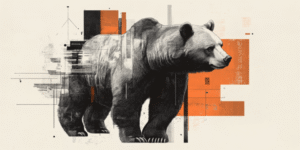Decades ago, travel agents held the keys to the world, crafting and coordinating trips for the everyday traveler. Then came Expedia, Google, and other online booking behemoths that shifted control directly to consumers, forcing agents to adapt.
Now, another disruption has arrived: artificial intelligence. And while its ability to plan travel may have some agents feeling fearful once more, a new wave of travel advisors see AI not as a threat, but a tool. And they’re leaning in.
Booking travel with AI
Athena Livadas owns Páme Travel, which specializes in booking five-star luxury travel. She uses AI daily to come up with high-level thoughts on routes or destinations, write emails faster, and drive her business.
“Most travel advisors don’t see the need, or even get offended, when AI is brought up in the context of travel planning. But I couldn’t disagree more,” she told Business Insider. “It’s not replacing us. It’s a tool that gives advisors super powers to deliver even more value.”
And according to her metrics, it’s working.
“When I look at a six-month period before and after I started using AI, my business has grown about 40%,” she said. “Of course there are other factors involved, but the time AI saves me has definitely been a contributing reason. It has freed me up to take on more clients and focus on marketing and outreach efforts that actually drive business results.”
While there’s no data yet on industry-wide adoption of AI tools, it’s clear Livadas isn’t the only one getting a boost from the technology. Fora, a digital travel agency with hundreds of advisors around the world, integrates AI internally in its own proprietary platforms where most advisors use it regularly.
“Fora began rolling out AI-powered tools in the fall of 2023,” said Jake Peters, the company’s cofounder and chief product and technology officer. “These tools are integrated directly into the advisor workflow, whether it’s drafting proposals, building itineraries, or creating marketing content.”
One tool, for example, helps format text to be easier to read and more client-friendly. “This feature is used 70% of the time when we are showing rates in our booking platform,” Peters said.
Another is a chatbot called Sidekick, which Fora has trained on all of its proprietary information, including trainings, help center articles, and hotel and destination information. “It’s used by 25% of advisors each month, and 35% of advisors who are new to Fora,” Peters added.
Rita Carton, an advisor with Fora, estimates that AI — including Fora’s internal tools and strategic use of ChatGPT for research — reduces her average trip planning time by 50%, cuts her client response time in half, and has increased bookings three times compared to last year. “A year ago, I could only manage two to three trips at a time and maybe five a quarter,” she said. “In Q1 of this year, I successfully handled nine simultaneous trips, tripling my capacity without compromising service quality.”
AI may be helpful, but it can’t do it all
Whether or not other agents agree on the need to embrace AI, it’s surely influencing how consumers plan travel. A Deloitte survey conducted from October 2023 to October 2024 found that the share of respondents who used generative AI for trip planning doubled from 8% to 16%.
“I feel like we’re at a similar age with AI that we were when the internet started to boom,” Livadas said. “You either adapt and learn how to use it to better your outputs for clients, or you’ll be left behind.”
That said, Livadas doesn’t think AI is going to replace travel agents anytime soon. She warned that travelers should expect to get common, generic travel advice from AI rather than the off-the-beaten-path, hidden gems that travel agents can help uncover.
“For example, if you’re planning a trip to Japan, it’ll probably spit out the usual Tokyo to Kyoto to Osaka route with big chain-brand hotels,” she said. “But if I were building the itinerary and I knew the client loved surfing, I would include Kamakura, a small fishing village with a mellow longboard wave that’s perfect in summer.”
These examples, she said, are exactly the kind of tailored touches AI routinely overlooks that travel advisors weave into itineraries every day.
This disconnect is directly aligned with the one major thing AI can’t replicate. “The travel agency is all about relationships,” Carton said. “We go directly to the hotel after we book to get the manager, and I cannot tell you how many clients have told me they got upgraded or had surprises in the room as a result. You can’t do that yourself.”
Indeed, personalized in-room perks, free upgrades, and moments meant to delight are hallmarks of the travel agent’s touch.
“A lot of the value we bring is relationship-driven, and that will never go away,” Livadas said. “I personally know general managers of five-star luxury properties all over the world that will welcome my guests upon arrival with a personalized gift from me. How can a bot do that?”
Read the full article here
















